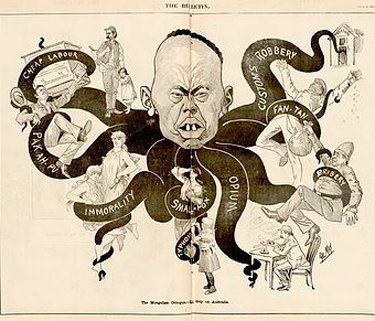H.R. McMaster warns, in the Atlantic, that China’s leaders are not friendly and have no intention of playing fair.
On November 8, 2017, Air Force One touched down in Beijing, marking the start of a state visit hosted by China’s president and Communist Party chairman, Xi Jinping. From my first day on the job as President Donald Trump’s national security adviser, China had been a top priority. …
Our last meeting of the state visit, in the Great Hall of the People, was with Li Keqiang, the premier of the State Council and the titular head of China’s government. If anyone in the American group had any doubts about China’s view of its relationship with the United States, Li’s monologue would have removed them. He began with the observation that China, having already developed its industrial and technological base, no longer needed the United States. He dismissed U.S. concerns over unfair trade and economic practices, indicating that the U.S. role in the future global economy would merely be to provide China with raw materials, agricultural products, and energy to fuel its production of the world’s cutting-edge industrial and consumer products.
Leaving China, I was even more convinced than I had been before that a dramatic shift in U.S. policy was overdue. The Forbidden City was supposed to convey confidence in China’s national rejuvenation and its return to the world stage as the proud Middle Kingdom. But for me it exposed the fears as well as the ambitions that drive the Chinese Communist Party’s efforts to extend China’s influence along its frontiers and beyond, and to regain the honor lost during the century of humiliation. The fears and ambitions are inseparable. They explain why the Chinese Communist Party is obsessed with control—both internally and externally.
The party’s leaders believe they have a narrow window of strategic opportunity to strengthen their rule and revise the international order in their favor—before China’s economy sours, before the population grows old, before other countries realize that the party is pursuing national rejuvenation at their expense, and before unanticipated events such as the coronavirus pandemic expose the vulnerabilities the party created in the race to surpass the United States and realize the China dream. The party has no intention of playing by the rules associated with international law, trade, or commerce. China’s overall strategy relies on co-option and coercion at home and abroad, as well as on concealing the nature of China’s true intentions. What makes this strategy potent and dangerous is the integrated nature of the party’s efforts across government, industry, academia, and the military.
And, on balance, the Chinese Communist Party’s goals run counter to American ideals and American interests.






Fusil Darne
No shit, Einstein. I suppose you think I needed to be on the same flight to come to that same conclusion?
I didn’t, and, I don’t.
Mike-SMO
Such cheerful Arrogasnce.
What happened to the smiling panda mask on that dragon?
Please Leave a Comment!